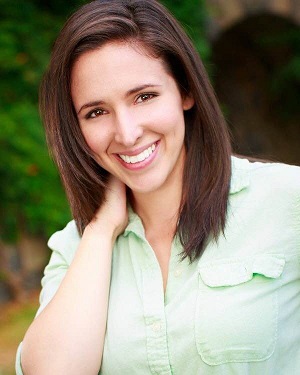
This blog is by Amanda Shpigler, a young woman in recovery who lives in upstate New York. In June 2016, Amanda was a panelist at a community forum on opioids in Albany.
 Today, the day of my two year anniversary in recovery, I can't help but notice the vast difference between the life I lead and the one I left behind two years ago. My life is simply amazing – I’ve graduated from college, I’m pursuing a Master’s degree, and I’m planning my career. Just two years ago though, I had a heroin use disorder.
Today, the day of my two year anniversary in recovery, I can't help but notice the vast difference between the life I lead and the one I left behind two years ago. My life is simply amazing – I’ve graduated from college, I’m pursuing a Master’s degree, and I’m planning my career. Just two years ago though, I had a heroin use disorder.
I started down this path when I fell for a girl and the fast-paced life she led. I began using marijuana with her when I was seventeen and quickly moved to cocaine, ecstasy, prescription pain medications, and eventually to heroin. The progression of my issues with substance use demanded I compromise my morals and forced me to abandon any semblance of self-respect. The result was depression, self-loathing, and immense pain for both myself and for my family.
I entered my first treatment program at eighteen but walked out after just four days. Short stays in treatment facilities and programs became a familiar environment for me as I experienced the revolving door that is common in substance use treatment. By the time I was able to actually stop using drugs, I had been in and out of more than two dozen hospitals and inpatient and outpatient treatment centers. Most of those stays had been voluntary however none lasted more than 14 days because my insurance company would not pay for the full length of necessary treatment. Ultimately it took being legally mandated for me to receive adequate, affordable treatment for my substance use disorder.
In December of 2013, I was arrested in New Jersey. I had left home – taking with me my parents’ car, some cash, a laptop, and anything else I thought I could trade or sell. My parents, now desperate to get me help, pressed charges. I went to jail and agreed to participate in drug court as an alternative to further incarceration. I spent the next 10 months at a residential treatment center in upstate New York.
When the 10 months were over, I went to an outpatient program and I stayed in a sober house until I was able to fully transition to living on my own as a person in recovery. Going through treatment was one of the most difficult challenges I have ever experienced, yet I look at my life now and I could not be more grateful.
Achieving recovery has allowed me to have an amazing life today. I graduated in May 2016 from the University at Albany, SUNY and am currently enrolled in their Master’s program for Mental Health Counseling. I am also in the process becoming a Certified Addiction and Substance Abuse Counselor. I hope someday to work as a counselor in a rehabilitation center and assist others who are in the same dark place where I once was.
Recently, I spoke on a panel at a community forum in Albany, New York, hosted by Michael Botticelli, the Director of National Drug Control Policy. Having the ability to speak out on behalf of people struggling with substance use issues is so important to me because it is my chance to reduce the stigma attached to substance use. Stigma is what stops many people suffering from this disease from asking for help and stigma is often what stops society from offering it.
People with substance use disorders are looked down upon and given inadequate treatment because as a society we treat addiction as a weakness of the will rather than a disease of the mind requiring medical attention. This must change. As I celebrate two years in recovery, it is my hope that by sharing my story we can move towards a world without stigma where a criminal record is no longer a necessary prerequisite for getting adequate treatment for the medical disorder of addiction.
Learn more about how President Obama is working to expand access to medication-assisted treatment here: https://obamawhitehouse.archives.gov/factsheets-prescription-opioid-abuse-and-heroin-use
**Views expressed by guest bloggers do not necessarily represent ONDCP policy**

